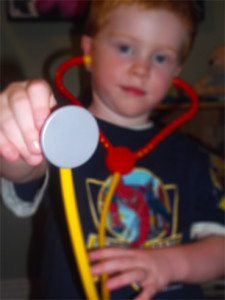Is Your Relationship Unhealthy?

It is very important to be able to tell whether or not your love relationship is healthy. Just like anything else in life, right? If your body is unhealthy in some way, you’d want to know how and why as soon as possible. The same goes for your mind, at least for most people. But how about your love life?
I don’t think we pay enough attention to whether or not our love lives are healthy. Imagine, if you knew how to determine whether or not your love life is healthy, you could find out what you need to learn to make your love life healthier, just like you would if your body was ill. In this post I will describe a list of ‘symptoms’ that you can use to determine the health of whatever love relationship you are currently in.
The most effective ‘medicine’ for an unhealthy love relationship is to increase the amount of ‘intimacy’ in that relationship. Intimacy is the cure for an unhealthy love relationship. Unfortunately, sometimes one or both persons in an unhealthy relationship are not interested in (or afraid of) the cure. Increasing the health of a relationship will often involve the combined efforts of two people. Even though, sometimes one person getting healthier in a relationship can improve the overall health of a love relationship.
There are seven (7) symptoms, alone or in combination, that indicate a relationship is unhealthy:
Control: One or both people in a relationship are trying to control what the other person thinks, feels, and does. More extreme forms of control lead to possession and abuse.
Dependency: One or both persons in a relationship expect the other person to do things for them that they can do for themselves. This experience when chronic leads to dysfunction in the dependent partner and over-responsibility in the ‘providing’ partner.
Exploitation: Exploitation occurs when one or both persons in a relationship are trying to ‘use’ the relationship for some kind of personal gain other than healthy love.
Avoidance: An avoiding person enters and remains in a love relationship but is unable or unwilling to make and keep the promise of commitment needed and being requested.
Distance: Distant lovers are people who enter a love relationship and find ways to stay at a distance within the relationship. Anything that ‘divides’ two people and reduces intimacy can function to perpetuate chronic distance in the relationship.
Abuse: Abusive lovers are people who are attempting to deal with their insecurities and emotional needs by controlling their partners with fear. Abuse can be emotional, verbal, physical, financial, or sexual.
Dishonesty: Dishonesty in a love relationship takes the form of lying and deception. Infidelity/cheating and misrepresentation of oneself are common forms of dishonesty in a love relationship.
As I indicated, these seven symptoms in a love relationship can occur individually or in combination, and indicate a love relationship is unhealthy. Here at the Love Life Learning Center we believe that these symptoms are the result of unhealthy love life learning experiences earlier in life that are recreated in adult love relationships. They can be learned through observation, direct instruction, or in a relationship experience with someone, usually in the family or origin and during childhood or adolescence.
The first step in making your love life healthier is to become aware that one of these symptoms is in control of your love life, along with the experiences you had in your life that may have ‘taught’ you the unhealthy love life lessons. Remember, the great thing about being a human being is, we all have the capacity to become aware of what we are doing and to use that awareness to disrupt something unhealthy from continuing to dominate and control our lives. This is particularly important in our love lives.
Comments? Welcome. Dr. Tom Jordan
